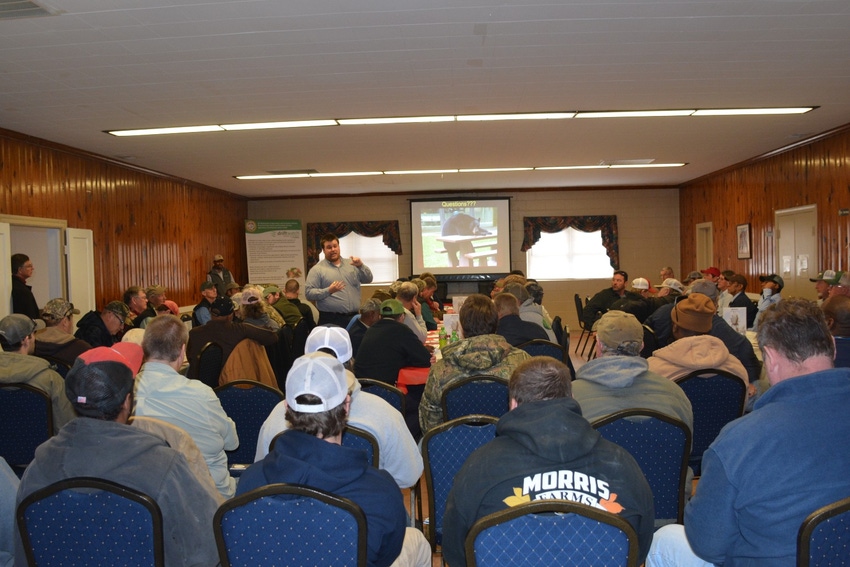
Back when he delivered mandatory auxin training, North Carolina State University Extension Weed Specialist Dr. Alan York would tell farmers and other applicators who packed the meetings at Extension centers and other venues across the state that it was hard to make the topic exciting, but he would do his best.
Actually, Dr. York, who has retired from Extension service, was a bit too hard on himself. He has a well-earned reputation as both an entertaining and enlightening teacher. He did make a complicated topic easy to understand, ensuring that applicators were well trained to safely apply auxin herbicides to cotton and soybeans.
In 2021, auxin training will once again be mandatory in North Carolina. Since Dr. York retired, current North Carolina State Extension Weed Specialists Dr. Wes Everman and Dr. Charlie Cahoon will deliver most of the training, which will look different thanks to the ongoing pandemic. Most of the training will be via Zoom with 12 sessions set from mid-January through late March. Farmers and other applicators will need to register at their county Extension office for the training.
In addition, Cahoon and Everman will provide county agents with a pre-recorded video of the 2021 Auxin Herbicides-Best Management Practices training. Agents can incorporate the video in winter meetings, live or virtual. Cahoon and Everman will also provide county agents with auxin training slide sets which can also be used at winter meetings, both live and virtual.
Auxin training will certainly look different in 2021. Gone will be the packed meeting rooms, but the training is still valuable and needed none the less. Folks will say applicators have already been trained and understand how to safely apply auxin herbicides without damaging other crops. That may be true, but a refresher course is always helpful.
Plus, like Alan York, Wes Everman and Charlie Cahoon are gifted Extension educators. They do their best to make a topic that really isn’t that exciting, useful and interesting. They are examples of Extension at its best.
The mandatory auxin training will be different in 2021, but it still will be time well spent for anyone who will be applying auxin herbicides to cotton and soybeans in 2021.
About the Author(s)
You May Also Like






